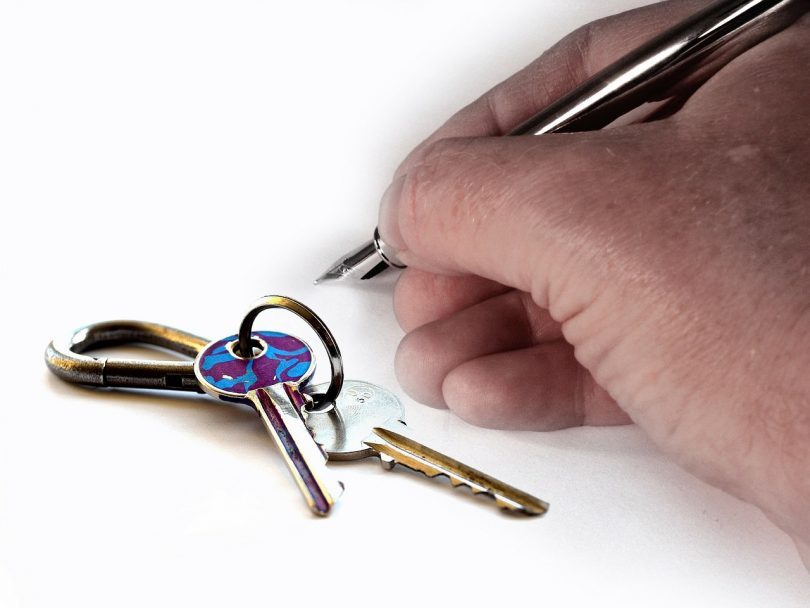If you are looking for a rental in Barcelona, you must know that this type of accommodation is regulated by the Urban Leasing Act, or Ley de Arrendamientos Urbanos (LAU). This Act changes every now and then, and that is why it is important to keep you updated.
This article by ShBarcelona will share every novelty on the Urban Leasing Act with you, in order for you to be aware of all the legal obligations that come with renting an apartment. You will feel better once you know what rights and obligations there are.
Related article: 10 Tips for Renting an Apartment in Barcelona
Table of Contents
What is the Urban Leasing Act (LAU) exactly?
This act concerns everything that is related to rentals, protecting both landlord and tennant, and it has done so since 1964. The act has been updated in 1995, 2013 and 2019. The latest update took place in 2021.
First of all, the act covers urban properties that are rented out to live in, like houses or apartments, but the act also applies to parking spaces, storage facilities, or any other space inside a property.
Find your ideal rental in Barcelona
There is always a rental contract, defining the transfer of the property in exchange for a certain amount of money (rent). This contract is between two parties: one hands over the property and the other one pays for the use of the property.
The act also regulates other functions besides the one it was originally intended for, regardless of the duration of the contract, and these functions are: professional, recreational and educational activities.



Photo via Unsplash
2019 Changes in Urban Leasing Act
As already mentioned, the LAU changed in 2019. These changes were significant, as they focused on offering the tenant more protection. If you need the specifics on the Act to be able to make good use of them, you must also know of these changes. At the same time, changes are also an important issue for landlords as they need to know what to expect.
Extension period obligatory
The first meaningful change is that the duration of rental agreements has been extended from 3 to 5 years. Besides that, if neither of the two parties express their wish to end the contract, there is an obligatory extension period of 3 years.
Find accommodation in Barcelona
If the landlord is a legal entity, the obligatory extension period is also 3 years, but the standard duration of the rental contract is always 7 years. The tenant should be aware that ending the rental contract requires 2 months’ notice.
If the landlord can prove he needs the property himself, the Urban Leasing Act states that the rental contract will not automatically be extended, but this should be mentioned clearly in the contract.
The Urban Leasing Act does not regulate a specific duration of rental contracts, it handles the automatic extensions, and only if neither of the two parties involved express a wish to end the agreement.
Related article: Should You Rent or Buy Property in Barcelona?
Management fees
Another important element when the landlord is a legal entity, is that property management fees are paid by the landlord, except if the tenant has taken the initiative to contract additional services.
Besides this, the extra guarantee may not exceed two extra monthly payments of rent when it concerns rental contracts of 5 years (or 7 with legal entities).
The principle of freedom of contract has returned for rental agreements with a surface area of over 300 square meters or a rent of more than 5.4 times the interprofessional minimum wage.



Photo via Unsplash
Rental prices limited
Additionally, a limit has been introduced with the update of the rent reference index for affordable housing contracts. This new concept is explained in Article 18 of the Urban Leasing Act (LAU). It is even possible to be exempted from paying ITP taxes when renting permanent housing.
After the 5 years (or 7 years with legal entities) of the rental contract have passed, it is only then allowed to increase the amount of rent, but the increase may not be over 20% of the initial rental price.
When renovations works have been carried out by the landlord inside the rental property, and if agreed by both tenant and landlord, there is no need for a new rental contract to be signed.
| 📌 A new rent reference index for Barcelona was introduced in 2020. It is regulated in Ley 11/2020, and its rules must be obeyed when establishing rental prices for rental properties. |
What is also regulated now, and which wasn’t before, is the security deposit. The deposit is a maximum of 3 months’ rent. The normal security deposit is 1 months’ rent, and the other 2 months are additional guarantees.
If the tenant is not living inside the property, for example with commercial spaces, then the legal deposit is 2 months’ rent. This is regulated in the latest update of Article 36.2 in the Urban Leasing Act.
Staying in Barcelona? Find your accommodation here
There are no rules on how many months worth of rent may be asked for a security deposit when it concerns long term stays. When a contract is signed for an initial period of longer than 5 or 7 years, the amount of the security deposit is agreed on between both parties.



Photo via Unsplash
As you have now read, most of the changes in the Urban Leasing Act are primarily to protect the tenant. They are meant to stop malpractices that have ocurred in the past, where a tenant’s only place of residence was his rental home.
What is your opinion on the changes in the Urban Leasing Act?
Sources:
- https://www.fotocasa.es/blog/alquiler/ley-arrendamientos-urbanos-en-cinco-puntos-clave/
- https://www.ilpabogados.com/la-nueva-ley-de-arrendamientos-urbanos-2019/
- https://www.boe.es/buscar/act.php?id=BOE-A-1994-26003#ti
- https://www.conceptosjuridicos.com/ley-arrendamientos-urbanos/



























Leave a Comment